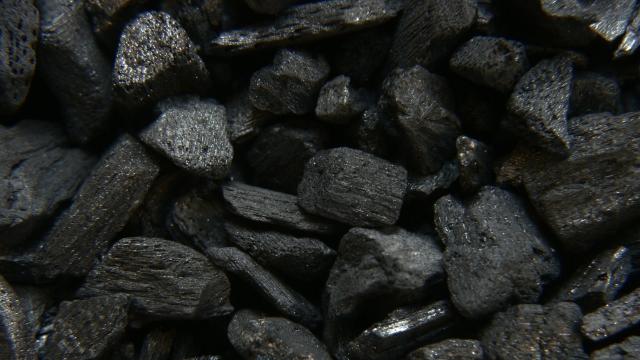Trendy toothpastes made with charcoal are likely a worse option for your teeth than traditional toothpaste, according to some British dentists. In a new paper, they argue that the claims behind these products, like better whitening, are completely unproven, and that they might even speed along tooth decay and other dental problems.
Charcoal has become a major novelty ingredient to add to whatever consumer product you can think of, whether it’s burger buns or makeup. But it isn’t just a pitch-black look that some companies are marketing; they’re also often claiming that charcoal will clear out toxins, ward off infections, or just plain make you healthier.
In the case of charcoal toothpastes, they’re supposed to be better at whitening teeth, cleaning off stains, and preventing bad breath than conventional toothpastes.
There’s some grain of truth to the benefits of charcoal. Historically, ingesting charcoal has been used to help relieve gas and other digestive problems. Nowadays, activated charcoal — a form of charcoal that’s been finely processed into a powder — is used to save people who have ingested certain deadly poisons or drugs, since the charcoal stops the poison from reaching the bloodstream through the gut. And it has been used (and still is in some rural communities globally) as a rudimentary toothpaste.
But the authors behind this paper, published in the British Dental Journal, argue that the new fad of charcoal toothpastes is essentially bunk. They point to a lack of any supporting evidence showing that these products are somehow better at cleaning and whitening teeth than other modern toothpastes. And there are plenty of reasons to think that they’d be worse.
For one, activated charcoal itself may be too abrasive for our teeth, wearing away their protective enamel layer. What’s more, the dark charcoal paste can leave teeth looking grimy if it isn’t wholly brushed off. The extra scrubbing needed to get rid of every trace of it could cause extra wear on enamel.
There’s also the fact that ingredients known to help prevent tooth decay, such as fluoride, are often taken out of charcoal toothpastes, since the charcoal can absorb them. And while other ingredients can be substituted in for fluoride, these products may still be worse overall at keeping your teeth healthy. Lastly, there’s the worry that small bits of charcoal can get stuck in fillings, veneers, or other dental restorations. Over time, this accumulation could ironically make your teeth look worse by permanently staining these dental restorations.
And these dentists are not the only ones sounding an alarm over charcoal. A 2017 review in the Journal of the American Dental Association similarly concluded that there was “insufficient clinical and laboratory data to substantiate the safety and efficacy claims of charcoal and charcoal-based” toothpastes.
All of which is to say, there’s no need to stick charcoal in your mouth when regular toothpastes do their job fine. And as we’ve reported before, even the gentlest toothbrushing can wear down enamel, so be sure to use only use light pressure when cleaning your teeth.
